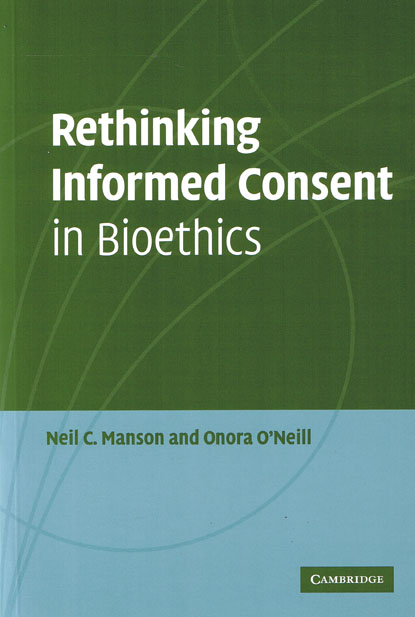
Informed consent is a central topic in contemporary biomedical ethics. Yet attempts to set defensible and feasible standards for consenting have led to persistent difficulties. In Rethinking Informed Consent in Bioethics Neil Manson and Onora O'Neill set debates about informed consent in medicine and research in a fresh light. They show why informed consent cannot be fully specific or fully explicit, and why more specific consent is not always ethically better.
They argue that consent needs distinctive communicative transactions, by which other obligations, prohibitions, and rights can be waived or set aside in controlled and specific ways. Their book offers a coherent, wide-ranging and practical account of the role of consent in biomedicine which will be valuable to readers working in a range of areas in bioethics, medicine and law.